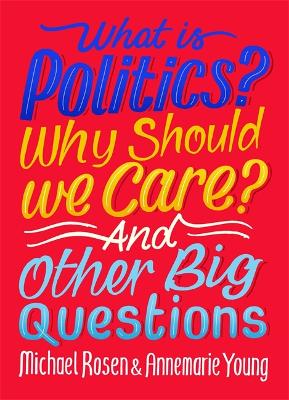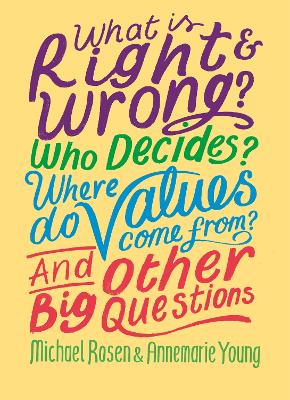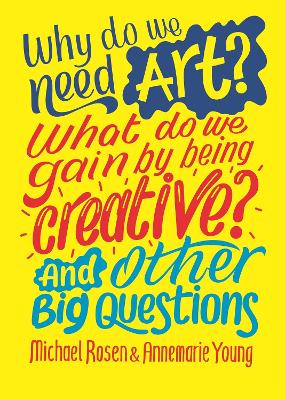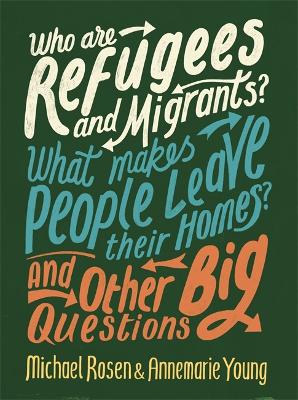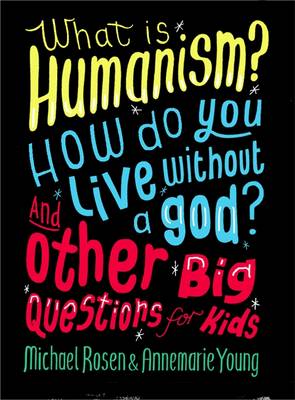And Other Big Questions
5 total works
What Is Politics? Why Should we Care? And Other Big Questions
by Michael Rosen and Annemarie Young
Politics, in its widest sense, affects us all, every day. What if there were no politics? What would that look like? What does it mean to be political or non-political and what effect do each of these positions have?
Aimed at children aged 9 and up, this book is a highly topical look at how politics affects everyone in society. It looks at the whole political spectrum, in countries around the world and examines what politics means in different contexts and situations. What forms can political action take, and what difference does it make?
There are contributions from a range of writers, who, along with the authors, discuss how their ideas of what politics is and can do have been shaped by their life experiences. Readers are encouraged to think for themselves about the issues discussed and decide how or whether they would like to take part in politics at some level.
What is Right and Wrong? Who Decides? Where Do Values Come From? And Other Big Questions
by Michael Rosen and Annemarie Young
Every day we make decisions that are underpinned by our ideas of what is right and wrong. But where do these ideas come from? Where do our values come from and who decides which values are used in a society?
This book is a highly topical look at how our decisions about what is right and wrong play out on an indvidual, local, national and global scale. It examines topics that are strongly connected to the values people hold and their ideas of right and wrong, such as democracy, justice, fairness, prejudice and discrimination, education, climate change and war.
There are contributions from Laura Bates, Richard Rieser, Tulip Siddiq and Alex Wheatle, who, along with the authors, discuss how their ideas of what is right and wrong have been shaped by their life experiences. Readers are encouraged to think for themselves about the issues discussed and decide which values are important to them.
Why do we need art? What do we gain by being creative? And other big questions
by Michael Rosen and Annemarie Young
A highly topical look at the role of art and the importance of creativity in our lives and the wider world. Art, in its widest sense, encompasses many different forms, from painting and poetry to dance, pottery and quilting and much else besides. Creativity is an essential part of what makes us human as well as being crucial for a range of disciplines in the world of work, including science, architecture and technological innovation. This book asks many questions relating to the importance of art in our lives, such as where is art and where does the impulse to make art come from? Who are artists? What is art for? Can art change anything? What use is the imagination and what is the point of daydreaming? It includes pieces from a range of contributors, including Kate Clanchy, Lemn Sissay, Preti Taneja and Andria Zafirakou, who write about their relationship with art and describe what being creative means to them and to others.
Aimed at young people aged 10 and upwards.
Part of the groundbreaking and important 'And Other Big Questions' series, which offers balanced and considered views on the big issues we face in the world we live in today.
Other titles in the series include:
Who are Refugees and Migrants? What makes people leave their homes?
What is Right and Wrong? Who decides? Where do values come from?
What is Race? Who are racists? Why does skin colour matter?
What is Mental Health? Where does it come from?
What is Politics? Why should we care?
Who are Refugees and Migrants? What Makes People Leave their Homes? And Other Big Questions
by Michael Rosen and Annemarie Young
What does it mean for people to have to leave their homes, and what happens when they seek entry to another country? This book explores the history of refugees and migration around the world and the effects on people of never-ending war and conflict. It compares the effects on society of diversity and interculturalism with historical attempts to create a racially 'pure' culture. It takes an international perspective, and offers a range of views from people who have personal experience of migration, including the campaigners Meltem Avcil and Muzoon Almellehan, the comedian and actor Omid Djalili and the poet Benjamin Zephaniah. Aimed at young people aged 10 and upwards, the book encourages readers to think for themselves about the issues involved. There is also a role-play activity asking readers to imagine themselves in the situation of having to decide whether to leave their homes and seek refuge in a new country.
Part of the groundbreaking and important 'And Other Big Questions' series, which offers balanced and considered views on the big issues we face in the world we live in today.
Other titles in the series include:
What is Humanism? How do you live without a god?
What is Feminism? Why do we need It?
